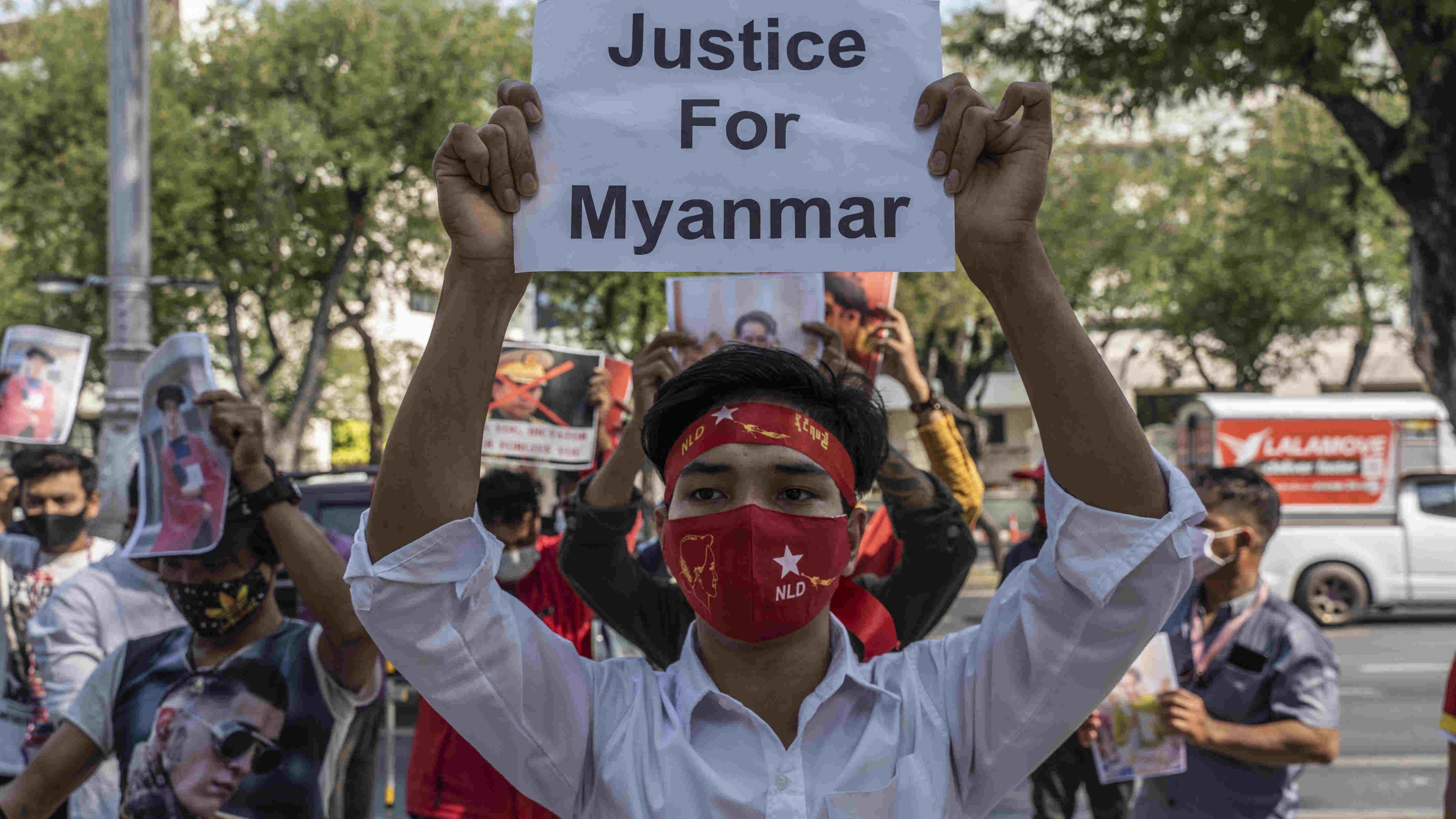Myanmar’s all-powerful military, the Tatmadaw, has imposed an Emergency and taken control of the country. Aung San Suu Kyi, who led her party, the National League for Democracy, back to power with a landslide victory — the NLD won 396 out of 476 seats — has been put under house arrest. Other NLD leaders have been imprisoned too.
Although the army was threatening a takeover for the last one month, not many were expecting it to happen. The Tatmadaw is not calling it a ‘coup’ in the hope that this would address the allegations of voter. But its real intent is clear because it has put a time frame of one year on the Emergency. Since it has taken over power a day before the newly-elected Parliament was expected to convene on February 1, one can expect three possible situations — the military will keep Parliament in suspension for a year and, then, hand over power to those elected in the November 2020 polls after arm-twisting the NLD into conceding that no attempt would be made to change the 2008 Constitution that gives the military 25 per cent of seats in Parliament and the control over the three key ministries of defence, home and border affairs; the military would attempt to anoint one of its candidates as the next president and only then would the NLD be allowed to take control of Parliament because it is the president who can exercise Emergency powers; the army may order fresh elections and try and rig it so that the pro-military Union Solidarity and Development Party, which was routed in the last elections — it won only 33 seats — is back in power.
The declaration of the Emergency follows many veiled and some fairly direct threats of a coup by the military, including the army chief, Min Aung Hlaing. On January 25, the Burmese military spokesman, Zaw Min Tun, put pressure on the National Election Commission to provide the final electoral roll for cross-checking. This was the first open challenge to the November polls’ verdict after the USDP had joined the Tatmadaw in alleging widespread irregularities.
The immediate cause for the military takeover appears to be personal. Min Aung Hlaing is due to retire in 2021. Reliable Burmese sources confirm that he has been trying to lobby hard to get the NLD’s support to become the next president. The NLD did not budge and insisted on retaining the current president, leading the military and its chief to suspect that Win Myint, the current incumbent, was keeping the seat warm for Suu Kyi until an amendment made it possible for the Nobel Laureate to contest for presidency. According to Chapter 3, no 59(f) of the 2008 Constitution, the president must be someone who “... himself, one of the parents, the spouse, one of the legitimate children or their spouses [can]not owe allegiance to a foreign power”. Suu Kyi’s late husband was the British professor, Michael Aris. Both her sons are British citizens. She could contest for the top job only if this provision is scrapped.
After November’s triumph, the army fears that the NLD may bring about amendments to change the 2008 military-drafted Constitution and challenge the military’s outsized role in running the country. Suu Kyi’s post-poll announcement of trying to create a ‘national government’ with the ethnic parties, which won more than 40 seats, was seen as an attempt to work up a big enough majority that was necessary for the smooth sailing of key constitutional amendments. The four key amendments sought by the NLD are the scrapping the following Articles — Article 14 that enables the military to hold 25 per cent of seats in Parliaments; Article 17(b) that reserves the nomination of ministers of defence, internal security and border affairs with the army; Article 40(c) that gives the army the right to take over power in a state of Emergency; and Article 201 that enables the army to set up the National Defence and Security Council as the most powerful body during a crisis with military representatives enjoying the upper hand.
The army is also upset with the NLD government for agreeing to take back Rohingya Muslim refugees in phases after a Chinese-mediated dialogue. Nearly 40,000 Rohingyas are expected to return in the first phase. The Tatmadaw is said to be uncomfortable with the prospective resumption of the repatriation process. The process may now be put on hold because of the Emergency.
Finally, Suu Kyi and the NLD seem to have concluded that any genuine change in the Constitution concerning federalism would be incomplete without finding a political solution to the ethnic insurgencies ravaging Myanmar. The constitutional amendment to bring about a ‘true federal union’ was part of the Union Peace Conference-21st Century Panglong initiated by the NLD government in 2016. That was meant to take forward the peace process. The army, although keen on an enduring ceasefire to avoid too much operational commitment, is not too keen on the Panglong process because a political settlement of the ethnic conflicts would reduce the need for an ever-expanding army and lead to lesser budgetary allocations for military modernization.
In 1990, the Myanmar army overturned the Parliament poll verdict that had gone in favour of the NLD in the nation’s first free and fair elections in three decades. Now it has used the allegations of electoral fraud as an excuse to overturn another electoral verdict, driving home the point that the Tatmadaw will only accept a Suharto-style ‘limited democracy’ and nothing more than that.










